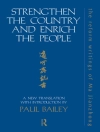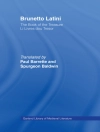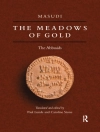‘In the Beginning was Napoleon’–‘Napoleon and no end’: Inspiration Bonaparte explores German responses to Bonaparte in literature, philosophy, painting, science, education, music, and film from his rise to the present.
Two hundred years after his death, Napoleon Bonaparte (1769-1821) continues to resonate as a fascinating, ambivalent, and polarizing figure. Differences of opinion as to whether Bonaparte should be viewed as the executor of the principles of the French Revolution or as the figure who was principally responsible for their corruption are as pronounced today as they were at the beginning of the nineteenth century. Contributing to what had been an uneasy German relationship with the French Revolution, the rise of Bonaparte was accompanied by a pattern of Franco-German hostilities that inspired both enthusiastic support and outraged dissent in the German-speaking states.
The fourteen essays that comprise
Inspiration Bonaparte examine the mythologization of Napoleon in German literature of the nineteenth and twentieth centuries and explore the significant impact of Napoleonic occupation on a broad range of fields including philosophy, painting, politics, the sciences, education, and film. As the contributions from leading scholars emphasize, the contradictory attitudes toward Bonaparte held by so many prominent German thinkers are a reflection of his enduring status as a figure through whom the trauma of shattered late-Enlightenment expectations of sociopolitical progress and evolving concepts of identity politics is mediated.
İçerik tablosu
Acknowledgments
Introduction
Seán Allan and Jeffrey L. High
Part I. Napoleon: Art, Literature, and Occupation
1: Prelude-Pre-Occupation Bonaparte:
Historical and Literary Conquerors in Schiller’s Life, Thought, and Works
Jeffrey L. High
2: Schiller’s Johanna and Collin’s Bianca as Women(‘s)-Liberators in Anti-Napoleonic Drama
Rebecca Stewart
3: Friedrich Hölderlin, the French Revolution, and Napoleon: Politics, Poetry, Philosophy
Laura Anna Macor
4: The Anecdote on the Battlefield: Napoleon-Kleist-Kluge
Christian Moser
5: ‘Der große Schauspieler, Napoleon Buonaparte’: August von Kotzebue’s Antitheatrical Politics
Elystan Griffiths
6: An Ingenious Tyrant: The Representation of Napoleon Bonaparte by German Women Writers
Elisabeth Krimmer
7: Icons of Resistance: Kleist, Le Musée Napoléon, and Queen Luise of Prussia
Seán Allan
Part II. Napoleon: Political Science and Natural Science
8: The European Machine God: The Image of Napoleon Bonaparte in the Political Writings of Jean Paul
Helmut J. Schneider
9: Saul Ascher’s Napoleon
Bernd Fischer
10: Napoleon’s Campaigns: Models for ‘French’ Revolutionary Science Abroad and at Home?
Mary Orr
11: Napoleonic Occupation and the Militarization of the Sciences:
The Case of Johannes Scherr and the Zurich Polytechnic
Andrew Cusack
Part III. Inspiration Bonaparte: German Receptions from Vormärz to the Present
12: ‘We are all possessed!’ Napoleon and Inspiration in German Naturalist Drama
Michael White
13: Arnold Schoenberg’s Setting of Byron’s
Ode to Napoleon: Fighting Hitler’s Regime in Byron’s and Beethoven’s Wake
Wolf Kittler
14: The Emperor’s Clothes: Napoleon as a Screen Icon
Susanne Kord
Notes on the Contributors
Index
Yazar hakkında
MICHAEL WHITE is Lecturer (Assistant Professor) in German at St Andrews University. His principal areas of research are in nineteenth-century literature, especially Theodor Fontane and Realism. His publications include: Space in Theodor Fontane’s Works: Theme and Poetic Function (MHRA, 2012); Theodor Fontane and Cultural Mediation, co-edited with R. Robertson (Oxford 2015). He has co-edited (with Andrew Cusack) a volume entitled Der Fontane-Ton: Stil im Werk Theodor Fontanes (2021).












